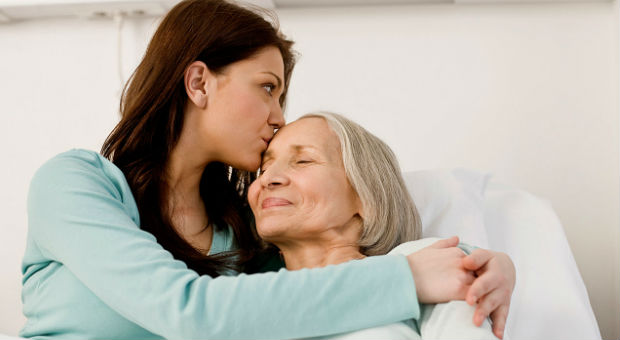Cancer affects entire families
When one family member has cancer, the whole family is affected; in fact, psychologists consider members of these families to be "secondary patients." Cancer affects the whole family, not only because cancer is linked to genetic factors and there is a risk of developing it, but also because when one member of the family has cancer, the whole family must cope with the disease.
If you or a loved one have been diagnosed with cancer, the whole family may need help. For example, when a woman is diagnosed with breast cancer, her spouse or partner may have to take on new responsibilities at home; and it may be necessary for relatives and friends to participate in daily household activities; Also, if there are children, they will need special attention. Good communication between all parties and protection against guardian burnout are critical. A psychologist can help develop a strategy that works for all family members during each phase of the illness.
- Ask for help with practical tasks. Family and friends can help you with practical tasks, like taking you to and from appointments, doing laundry, going to the grocery store, making meals, or running errands. Someone can also help schedule appointments or take care of insurance matters.
- Bring someone with you to appointments. Having someone with you at appointments to take notes is very helpful in making sure the most important information is recorded. I have also seen family and friends help as counselors and companions during appointments, sometimes taking an active role in treatment conversations and asking insightful follow-up questions. On more than one occasion, I have seen them help by reporting symptoms, such as nausea or insomnia, to a doctor who can then recommend treatment. It is essential that patients ensure that the person who comes with them to an appointment is a trusted companion. Make sure that person knows why exactly she is going with you and what her role is.
- Recognize the value of companionship. It can be difficult to face cancer alone. Remember that family and friends can help just by being there with you. These loved ones are often patiently waiting in the hallways during radiation therapy sessions or sitting next to a patient who is receiving a long infusion of chemotherapy. Just having someone around to support you can help remind you that you are not alone.
- Put someone in charge of sharing your medical news. Getting cancer treatment is physically and emotionally exhausting. It can be particularly difficult to share your medical information with other people and answer the same questions repeatedly. Ask a trusted family member to communicate medical information to other family and friends, whether by phone, email, text message, blog post, or whatever method is best suited to your specific situation.
- Don't be afraid to lead the conversation. Often times when someone is first diagnosed with cancer, family and friends may not know how to talk about the disease. This may bring up difficult emotions from their own past, or they may simply be afraid to bring up cancer because they don't know what to say or do. You or your primary caregiver can take the lead in conversations about your diagnosis, indicating what you would like to talk about and what you would not like to talk about. By doing this, you or your caregiver can set expectations for how to talk about the topic. Sometimes it's just as important to just tell people that you need to be heard and not get well-intentioned advice that you don't want. And it can be helpful for these people to know when they want to talk about things other than cancer, such as their shared interests.
Have an interpreter, if you need one. We live in an increasingly diverse society, so it is quite common for clinicians and patients to be from different countries or origins. If you, your family, and your friends are not native English speakers, navigating the American health care system can be difficult due to language and cultural barriers. If this is the case, interpreters are essential to the cancer care setting. Many cancer centers have professional medical interpreters, either in person or by phone or video conference, to translate between doctor and patient. And, a close relative or member of your community who is fluent in English can help you schedule or change appointments, explain a symptom, and other tasks. This person can also explain their beliefs and customs to the healthcare team, which can be critical to ensuring an effective and compassionate cancer treatment plan.
Caregiver Wear
What I can do? You can take steps to ease the stress related to caregiver burnout. Here are some tips:
- Ask for help. Family, friends, and neighbors may be able to step in.
- Let someone else take care of your chores when offered so you can rest.
- Talk to someone. Consider meeting with a social worker or support group.
- It's okay if you're feeling upset - crying, feeling groggy, upset, or feeling whatever you're feeling.
- Don't neglect your health. Eat right, exercise, and get plenty of rest.
- Take things one day at a time. Understand that you will have good and bad days.
- Instruct yourself. Knowing all you can about your loved one's cancer can help you feel more in control and help you set realistic expectations.
